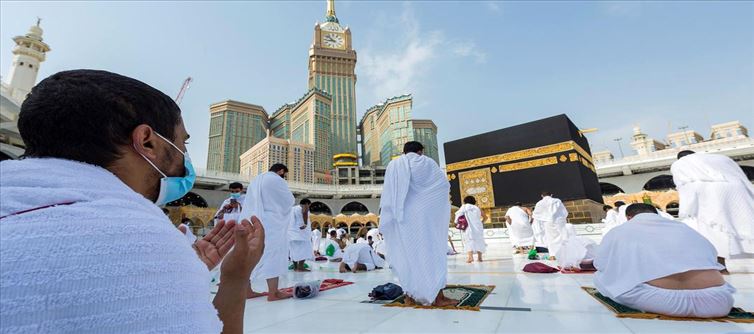
As a Muslim, at least once a year I go on pilgrimage to Mecca, Islam’s holiest city, located in Saudi Arabia. There could be over 1.9 crore pilgrims each year. “Hajj”, which is a mass gathering of over 25 lakh muslims is held once a year. Both the Umrah and Hajj pilgrimages were not possible for most of 2020 due to the outbreak of the Covid-19 pandemic.
However, saudi arabia as a whole has fared well in handling the pandemic. It has had low mortality rates and minimal social and economic disruption. There is been widespread testing and vaccine access. This allowed it to open up for pilgrims. For starters, the Saudi authorities required foreign pilgrims to have a negative PCR test result. These had to be taken within 48 hours before arrival in Saudi Arabia. Upon arrival, all pilgrims either had to do a mandatory quarantine at a government-approved hotel for six days or take a PCR test after 48 hours of quarantine and, if it was negative, could leave the hotel. Travellers from countries categorised as “high-risk” were required to do a mandatory seven-day quarantine but also needed to have a negative PCR test upon completion.
Face masks – which provide a barrier and keep the new corona virus from spreading – were mandatory. Harsh penalties were imposed on anyone not wearing a mask or trying to enter the Haram without a valid permit. The markedly restricted number of pilgrims – to 50,000 a day from a huge capacity of hundreds of thousands – made it easier to manage people and enforce measures. In addition, the Iftar meal – taken at the break of fasting – was provided in neatly sealed packages. Indicated by a label, these were prepared under stringent hygiene conditions eliminating the risk of the SARS-CoV-2 transmission from handling.




 click and follow Indiaherald WhatsApp channel
click and follow Indiaherald WhatsApp channel